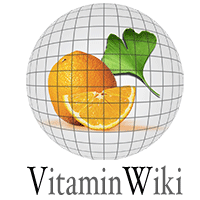Grünalge mit Schutzwirkung
Mikroalge zur Entgiftung: Die Chlorella-Alge (Chlorella pyrenoidosa) besitzt durch ihren hohen Gehalt an bestimmten Eiweißen und Biomolekülen (u.a. Sporopollenin) die Fähigkeit, toxische Substanzen wie Pestizide und Schwermetalle wie Cadmium, Blei und insbesondere Amalgam zu binden und auszuleiten. Darüber hinaus erhöht Chlorella den Glutahionspiegel. Glutathion fördert die Entgiftungsleistung der Leber und ist selbst aufgrund seiner Affinität zu Schwermetallen in der Lage, anorganische und organische Quecksilberverbindungen zu binden. Das in hoher Konzentration enthaltene Chlorophyll steigert zudem den Sauerstoffgehalt im Blut und verbessert das Körpermilieu.
Mariner Antioxidant: Die Chlorella-Alge besitzt außerdem eine hohe Konzentration an Antioxidantien, vorrangig Polyphenole und Carotinoide wie Beta-Carotin, Lutein und Zeaxanthin. Diese reduzieren oxidative Schäden sowie den Ausstoß der Körperzellen an so genanntem Stickstoffmonoxid (NO). NO löst normaler Weise Entzündungsprozesse aus, die zu oxidativen Schäden, der so genannten Lipidoxidation, führen. Chlorella senkt den NO-Ausstoß der Zellen. Hierdurch können sich antioxidative Enzymsysteme, vor allem die Glutathionperoxidase, die Superoxidismutase und die Katalase stärker entwickeln.
Weitere wissenschaftliche Veröffentlichungen: 1. Konishi, F. et al.: Antitumor effect enduced by a hot water extract of Chlorella vulgaris (CE): Resistance to Meth-A tumor growth mediated by CE-induced polymorphonuclear leukocytes. Cancer Immunol. Immunother 19:73-78, (1985). 2. Kojima, M. et al.: A New Chlorella Polysaccharide and Its Accelerating Effect an the Phagocytic Activity of the Reticuloendothelial System. Recent Adv. R.E.S. Res. 13:11 (1973). 3. Kobayashi, S.: Influence of chlorella extract an reticuloendothelial phagocytosis of rats. Health and Industry Newsletter. Agricultural Chemical Convention (1978). 4. Konishi F. et al.: Antitumor effect induced by a hot water extract of Chlorella vulgaris (CE): resistance to Meth-A tumor growth mediated by CE-induced polymorphonuclear leukocytes. Cancer Immunol Immunother 19(2):73-78 (1985). 5. Matsueda, S. et al.: Anti-tumor effect by oral administration of Chlorella extract. PCM-4. Gan To-Kagaku-Ryoho, 10(3), 781-5 (1983). 7. Tanka K. et al.: Oral administration of a unicellular green algae, Chlorealla vulgaris, prevents stress-induced ulcer. Planta Medica 1997; 63:465-466 (1997). 8. Yamaguchi, N. et al.: Immunomodulation by single cellular algae (Chlorella pyrenoidosa) and anti-tumor activities for tumor-bearing mice. Third International Congress of Developmental and Comparative Immunology, Reims, France, July 7-13 (1985). 9. Lee, SH et al.: Six-week supplementation with Chlorella has favorable impact on antioxidant status in Korean male smokers., Nutrition, pp. 175-83 (2010).

